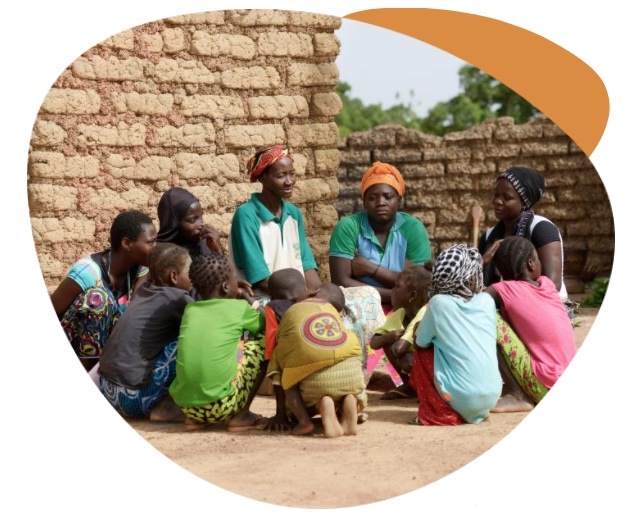Indigenous data in effective humanitarian responses
DOI:
https://doi.org/10.21153/thl2021art1505Keywords:
humanitarian, crisis intervention, decolonisation, Indigenous knowledge, localisation, innovation, sustainabilityAbstract
In the international humanitarian landscape, crisis interventions are deployed based on a long-standing working culture that presupposes that local authorities are usually overwhelmed during a crisis and unable to mobilise local capacity. Thus, external human resource mobilisation is necessary. However, this may only be true in various instances, such as natural disasters, where rapid response is needed to extinguish further harm to human life. In most cases, there are no mechanisms to make prior assessments that can inform decision-makers about the kind of international assistance needed in the local context.
This is because existing data for the availability of resources is produced mainly by international aid agencies and their governing political institutions. This database of knowledge, which leans heavily on a post-colonial Anglocentric viewpoint about ‘best practices’, is used as the baseline to assess the ability of potential partners to mobilise their resources, while failing to include the capacity of local agents to determine what capacity exists in a particular context, what they are already capable of delivering and how best to support their response system (United Nations International Strategy for Disaster Reduction [UNISDR] 2008).
However, as access to digital communication devices and other globally useful technology in resource-constrained rural settings continues to emerge, this may soon change. This paper explores the ways in which Indigenous and local knowledge should contribute to the exploration of intelligent and sustainable solutions that are well-suited within the local context to mitigate and understand humanitarian crises before, during and after they occur, and how to curate, analyse and use local data and knowledge systems to create innovations that are sustainable and adaptive to the priorities of the local population.
Downloads
References
Africa Voices Foundation. (2021). https://www.africasvoices.org
Andreotti V., Mika C., Ahenakew C., and Hireme H. (2019). Indigenous Knowledge Systems and Anticipation. In: R. Poli (ed.) Handbook of Anticipation. Springer.
Barbelet, V. (2018). ‘As local as possible, as international as necessary’: Understanding capacity and complementarity in humanitarian action. Overseas Development Institute. https://odi.org/en/publications/as-local-as-possible-as-international-as-necessary-understanding-capacity-and-complementarity-in-humanitarian-action/
Barbelet, V. (2019). Rethinking Capacity and Complementarity for a More Local Humanitarian Action. Overseas DevelopmentInstitute. https://odi.org/en/publications/rethinking-capacity-and-complementarity-for-a-more-local-humanitarian-action/
Carroll, S.R., Rodriguez-Lonebear, D., and Martinez, A. (2019). Indigenous Data Governance: Strategies from United States Native Nations. Data Science Journal, 18(1) 31.
Clement, M. (2020, 18 August). Roundtable: How Indigenous communities respond to disasters. The New Humanitarian. https://www.thenewhumanitarian.org/feature/2020/08/18/Indigenous-communities-disaster-humanitarian-response-coronavirus
Davies, R. (2020). Extreme Economies: What Life at the World’s Margins Can Teach Us About Our Own Future. Black Swan.
Gabriel, A.G., De Vera, M., Antonio, M.A.B., and Adam, E. (2020). Roles of Indigenous women in forest conservation: A comparative analysis of two Indigenous communities in the Philippines. Cogent Social Sciences, 6:1, DOI: 10.1080/23311886.2020.1720564.
Gatimu, C. (2014). Traditional Structures in Peace and Security Consolidation: Case of House of Elders in Somaliland. International Peace Support Training, Nairobi, Kenya, Occasional Paper, No. 5.
Harvey, P. (2009). Towards good humanitarian disaster response: the role of the affected state in disaster response. Humanitarian Policy Group. Brief No. 37.
Indigenous DRR. What is Indigenous Disaster Risk Reduction? https://www.Indigenousdrr.com/about_us
Kurnio, H., Fekete, A., Naz, F., Norf, C., and Jüpner, R. (2021). Resilience learning and Indigenous knowledge of earthquake risk in Indonesia. International Journal of Disaster Risk Reduction. 62.
Rapatsa, M. (2016). Ubuntu and Capabilities Approach: Basic Doctrines for Calibrating Humanitarian Action. European Review of Applied Sociology. 9(12).
Tandon, A., and Chmutina, K. (2020). Insight: A Participatory Game. International Centre for the Study of Preservation and Restoration of Cultural Property. https://www.iccrom.org/sites/default/files/Insights_FINAL-LAYOUT_131020.pdf
United Nations Educational, Scientific and Cultural Organisation. (2017). Local Knowledge, Global Goals. Paris.
United Nations Educational, Scientific and Cultural Organisation. (2021). Dynamism of ‘traditional’ knowledge. http://www.unesco.org/new/fileadmin/MULTIMEDIA/HQ/SC/pdf/LINKS_ex_09.pdf
United Nations International Strategy for Disaster Reduction. (2005). Hyogo Framework for Action 2005-2015: Building the Resilience of Nations and Communities to Disasters. https://www.unisdr.org/2005/wcdr/intergover/official-doc/L-docs/Hyogo-framework-for-action-english.pdf
United Nations International Strategy for Disaster Reduction. (2008). Indigenous Knowledge for Disaster Risk Reduction: Good Practices and Lessons Learned from Experiences in the Asia-Pacific Region. Bangkok. https://www.sheltercluster.org/sites/default/files/docs/Indigenous%20Knowledge%20for%20Disaster%20Risk%20Reduction.pdf
Vera, C. A., and Brusola-Vera, L. M. (2021). Local Humanitarian Leadership: The View from Local Actors. Oxfam Philippines. https://policy-practice.oxfam.org/resources/local-humanitarian-leadership-the-view-from-local-actors-621190/
Viswanathan, S., Karthykeyan, D., and Williams, W. (2021). Barriers to Data Use in Sustainable Development. Global Partnership for Sustainable Development Data. https://www.data4sdgs.org/resources/barriers-data-use-sustainable-development
Wijesuriya, G., and Court, S. (2020). Traditional Knowledge Systems for Conservation and Management of Asia’s Heritage. International Centre for the Study of Preservation and Restoration of Cultural Property. https://www.iccrom.org/news/traditional-knowledge-systems-conservation-and-management-asia%E2%80%99s-heritage
Zyck, S. A., and Krebs. H. (2015, 10 July). Localising humanitarianism: improving effectives through inclusive action. Overseas Development Institute. https://odi.org/en/publications/localising-humanitarianism-improving-effectiveness-through-inclusive-action/







